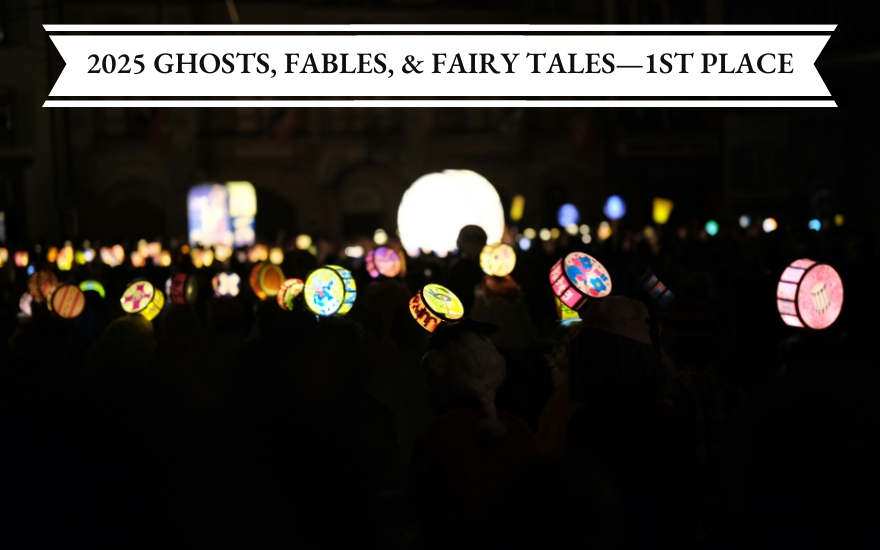We had always been many-in-one, even before witch-woman Nnenka’s curse made it flesh. Our mothers stood at different cooking fires, our fathers prayed to different ancestors, yet destiny pulled us together like scattered beads finding their way back to a single string. In the market square of our village, they still remember how we used to walk, separate—three girls with three shadows and three different laughs. Amara lived half in this world, half in history’s bloodstream, her school notebook margins bloomed with Queen Amina’s battle tales. Zainab danced sufi-spells at cattle camps. Her feet made djinn swallow their thousand tongues and bleed prophecies older than her ancestral bones in Sokoto. And Kioni, keeper of secrets that arrived wrapped in midnight shame, whose garden herb roots knew how to make white man’s seed die screaming before it could grow into tomorrow’s grief.
We were ogbanje before we knew it, before we had names for the thing that made us different, the thing that made the air shimmer around us like heat on tar. That was before witch-woman Nnenka found us counting cowries under the udala tree. She saw rivals who could match her century of keeping white men’s boots from crossing village borders. Her sideways-walking legs brought brass-bell clatter, brought curse born from spite and fear of being outdone.
Now nobody asks why we walk three-heads-one-body down the grass path. Nobody dares. Not since they found the last man who laughed at us split wide like overripe pawpaw at the crossroads, his guts writing prophecies in Nsibidi script older than Lord Lugard Street in Lagos. Witch been dead seven moons but her curse still grips our flesh like lion teeth in midnight meat. White man writes us down in his book under “African Deformity,” but he doesn’t know shit about power this old. Power that was ancient when Oshun was still sucking her mother’s milk.
Three souls crammed in one meat-cage like fish in a trap, three clay pots on three heads, and every morning we fight over who wears the flesh first. Sometimes the argument ends in blood. Sometimes in a song that makes hyenas cover their ears. Sometimes the body rebels, spits out all three souls like bitter kola, leaves us begging proper-proper to come back in.
Amara wants it for fighting, still thinking revolution hides in gun barrels. She forgets the old ways of war—plantain mixed with menstrual blood sweet as first-love’s spit but shadow-blade sharper than co-wife’s tongue. This kind of juju turns a soldier to pillars of salt before his first boot print dries in the dirt.
Zainab wants to dance with it, says visions come clearer when the body moves like cobra-spine. Dance that cracks thick baobab trunks, dance that wakes sleeping Orishas. The kind of dance that makes thunder swallow its own sound.
And Kioni, quiet-quiet Kioni who used to heal with just a touch, she wants to return to the crossroads, thinking maybe the devil-woman who cursed us might still be lurking there, looking to make a bargain. But what deal can you make with a witch who’s already dead?
Each dawn we feel the merging sink into marrow, and often forget to argue at all. That terrifies us more than any witch-mark—losing our separate angers, our different hungers.
Truth strikes deeper than mosquito-thirst: we stronger this way.
When soldier-man comes hunting our village girls, we shift quick-quick between souls until his head spins. One minute we’re in warrior stance, ready to open his belly slow-slow with rust-blade. Next breath we’re the medicine-woman, feeding him his dead mama’s tears till shame drowns his courage. Third turn we’re spirit-walker, showing him seven deaths waiting in his future, each one worse than the last.
Some people think cursing is a simple thing. Put lizard head in someone’s soup, murmur mmuo words. But real curses got layers like iroko tree got rings. First layer: flesh binding to flesh, palm sap thick and unyielding. Second layer: raging thoughts eating memories until even our scars forget which body birthed them. Third layer: power growing in the spaces between souls, strong enough to make even Shango stutter in his thunder-walking.
Night market women say they see us dancing when the moon swells full as a witch’s calabash. Say we fracture into three wraiths but keep one body. Say spirit-forms hunt each other like leopard stalking gazelle—kill-dance, fuck-dance, both the same blood-rhythm. Each shape wearing a face our mothers once named, before witch-woman’s pot boiled us into something new.
Some nights we dream we were one soul all along, split three ways when Olodumare first shaped dawn. Dreams lie though. Taste sweet as rotten mango—sugar on top, maggots beneath. We remember our separate selves clear as machete-light on bone, but memory means nothing when you are becoming something that makes the oldest Gando leak fear from every hole—rank as week-old fish. A thing that trades riddles with river mothers, drinks kunu fermented in grave-soil—thick as clotted blood, sharp with sorghum bite.
Village children sing about us in twilight:
Three heads in morning
One body at noon
No heads in evening
Death coming soon
But death already came and went with harmattan winds. Came when the witch bound us together, went when we transformed confinement into coronation. Now we wait to see what emerges from this chrysalis of flesh, what sublime terror we birth from unified breath.
Let them bring their holy water. Three pots, three souls, one body walking. Every footstep writes juju-law no Imam or Reverend or Babalawo ever learned to read.
They say witch-woman Nnenka died because you can’t bind three spirits stronger than your own. She thought we’d war for the flesh until nothing remained. Last thing she saw was three powers turning her own curse into knives that cut her throat.
They say three girls went missing the same night Nnenka died. Say nobody ever found their bodies.
We not missing. We right here, walking—three-souls-strong—daring anyone to call us cursed.

